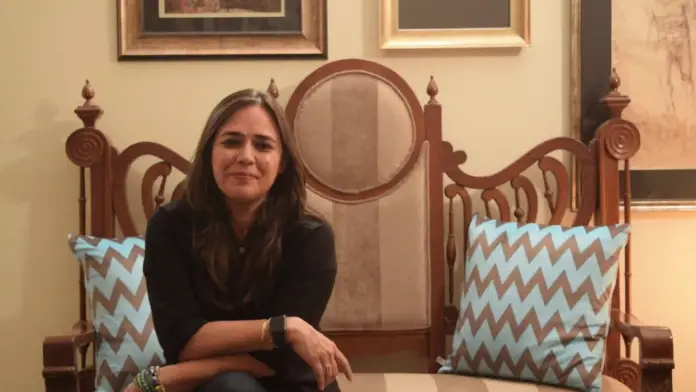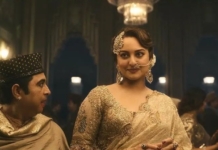THROWBACK SUNDAY: Earlier this month, Mehreen Jabbar took to her Instagram account to share an old picture showing the ace director sitting beside Azra Baber, one of the finest Pakistani writers from the late 90s and early 2000s.
Seeing the duo together, the viewers were instantly taken back to the time when Pakistan Television’s golden era was breathing its last, and Jabbar and Baber, with their artistic telefilms, were trying their best to keep things from getting worse.
While the telefilm and long-play culture was there ever-since the inception of Pakistani drama industry, the late 90s were marked by some very special works in the genre, which were unique in multiple ways. Carrying soft lighting, classical music and top-notch actors, these telefilms dealt with a wide variety of topics, and that too almost two decades ago.
Aired mostly under the banner of Tasveer Productions, these sepia-toned dramatic works would be penned by Azra Baber and directed by Mehreen Jabbar. While the former would address issues like single parenting, freedom of choice, subtle domestic violence and patriotism to name only a few, the latter would execute these stories on screen in the finest possible manner with performers like Marina Khan, Humayun Saeed, Sania Saeed, Nadia Jameel, Huma Nawab and Faisal Rehman.
This is the reason why these telefilms from the 90s such as “Farar”, “Putli Ghar”, “Abba Amma aur Ali” and “Beauty Parlour” are etched in people’s minds as pieces of art the kind of which aren’t available to relish anymore. In the early 2000s, the duo also experimented with serials and didn’t disappoint at all. “Dhoop Mein Sawan”, “Aur Zindagi Badalti Hai” (shot in the historical alleyways of Spain) and “Pehchaan” are a few examples, the last one being a HUM TV production from the year 2006.
“Pehchaan” was based on the life of South Asian expatriates living in the US, and was also the last serial to be written by Baber, after which no project of hers ever appeared on the small screen. Jabbar, however, continued to work in her characteristic way with writers like Umera Ahmad, Sameera Fazal, Khalil ur Rehman Qamar and Farhat Ishtiaq, but her dramatic projects with Azra Baber, carrying short artistic scenes here and there, at times of youngsters taking classical dance classes and at times of bored housewives spending time knitting dolls, were never seen again.
Jabbar’s uploading of the photo was followed by lovely comments from fans, all of whom exhibited a nostalgia for that period in which the writer-director duo was working together to produce meaningful content for the viewers. We hope that a director like Mehreen Jabbar is once again given the chance to bring non-commercial writers’ content on screen to save us the ordeal of having to watch “saas-bahu” dramas all the time.








Comments are closed.